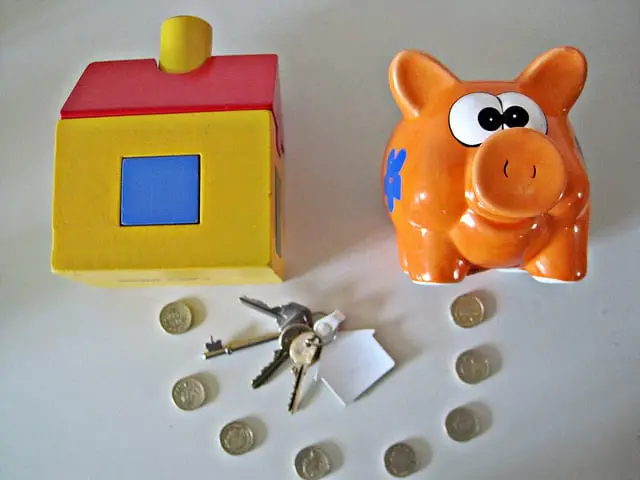The $233K Cost Of Raising A Child – And How To Prepare Yourself
If you’re a parent-to-be, thinking about having your first child, you had better get preparing. The cost of raising a child is higher than you think, costing an estimated $233,000, according to a report released by the USDA.
Raising a child has become more expensive, thanks to the fact that children are staying at home longer than ever before. Instead of leaving home and going to find work when they are 17, most kids stick around until their mid-twenties.
It’s not just the length of time either that’s causing costs to rise. It’s also the costs that are now associated with preparing somebody for the workforce. Families have to shell out tens of thousands a year to pay for college tuition – something which they didn’t have to do in the past when going to college was cheaper and fewer people did it. Parents have to cope not only with the immediate tuition costs, but also the prospect that their son or daughter won’t find a job after they graduate, something that is becoming all too common.

Of course, the actual amount spent on a child varies according to a family’s income. The higher the income, the more parents are at liberty to spend on their children. The $233K number is just the average for all parents, regardless of income. This means that there’s a lot that you can do to whittle the number down and potentially save more for your child’s education and the future. The USDA made the $233K calculation based on a middle-income family with two kids, but depending on your circumstances, you could wind up paying more or less.
And where does all that money actually go? You can forget about toys and strollers. A large chunk of the money goes towards the costs of additional housing – roughly 29 percent. The extra cost of food takes up the next 18 percent, and education takes up a further 16 percent. Other expenses include going away on family holidays and extra fuel costs for the car.
The amount that people pay out for kids also depends on where they live. Parents in the West and Northeast wound up paying more than parents in the Midwest to raise their kids. Urban living with children is much more expensive than rural living.
There’s also a big difference in the cost of an extra child after the first. Parents of three children actually end up spending 27 percent less per child than parents of two children. And parents of just one child spend 24 percent more on that child than parents of two children. In other words, every child parents add to their families, they spend less money on – understandably, really.
The sticker price of a child is shockingly high – almost the price of a new home – but you don’t have to cough up all the money at once. Instead, you’re able to plan ahead for some of the significant expenses and be creative when it comes to saving on costs. Here are some tips on how to prepare yourself financially for the birth of a new child.
Research Tax Breaks
The government likes it when people go forth and multiply. The reason for this is that they want to keep the birth rate high so that there are people in the next generation who will pay for all their social programs by going to work and paying taxes. In the US, the IRS tries to incentivize parents to have more children through tax credits and deductions. In other words, if you have a child, you could end up paying fewer taxes on your income than if you don’t. There are a couple of different types of tax incentives, including the dependent care credit and the dependent exemption, both of which could save you a substantial amount of money.

Most accountants have a good grasp of family tax law. Have a word with them about how much money you can save on your tax bill by adding extra children to your family. How do the incentives change as you move from one to two to three or more children?
Start Investigating Life Insurance Today
Nobody wants to think about life insurance: it’s a grim topic. But it’s one of those things that needs to be discussed nonetheless. What would happen to your family if you suddenly died and they could no longer rely on your income? They’d probably struggle with financial hardship. Life insurance policies can help prevent that from happening by paying out a predetermined lump sum when you’re gone. This can then be plowed back into your children and help maintain their lifestyle. It can also be used to pay for education in the future so that they can still be successful in their lives. Getting started with life insurance can be a little tricky, but there are many guides out there which help you to decide which policy is best for you.
Reconsider Your Budget
According to Michael Banks, it’s important for families considering children to reconsider their budget. There are all sorts of unexpected costs when raising a child, from random out-of-pocket medical expenses to the cost of buying infant formula and diapers. These costs might not seem like a lot by themselves, but they soon add up over time. The USDA, for instance, estimates that these additional unforeseen costs can total more than $12,000 for some families, a significant chunk of their income.
Parents who don’t prepare themselves for these additional costs can quickly run out of money and find themselves in financial difficulties and so it’s imperative that families are honest about their take-home pay and how much they’ll need to spend. Some parents invest so much money in their children that they forget about their daily needs, get stressed out and start regretting family life. Once bills and childcare costs are taken into consideration, they have practically nothing left to spend on themselves. Worse still, some parents resort to “cheap treats” – buying themselves chips and chocolate to help themselves feel better.
Having an overarching budget will help you to see the bigger picture when it comes to your kids. Sometimes you’ll need to jig things around a little bit to make ends meet, especially if one parent is taking time off work while the children are young.
Check For The Best Health Insurance Plan
Health costs are spiraling out of control in the US, thanks to the policies put in place by politicians over the last decade or so. Americans were told that their premiums would come down, but thanks to skyrocketing deductibles, that hasn’t happened. Instead, many families have effectively been left without health insurance, having to pay for most trips to the doctor’s office out of pocket. With the recent failure of the GOP to replace the health bill with something that costs less, many families are wondering how they’re going to afford health costs for their children in the future.
The best that parents can do is choose a health plan that covers their baby costs. If you have a plan through work, go to your HR department and tell them that you would like an infant to be added to your policy. If your policy is set up privately, then ask for how much it will cost to add your new child to the policy. Can you afford to make the payments?
Grab A Dependent Care FSA
If you’re planning on paying for your own childcare, then something called a dependent care flexible spending account can help. All you have to put is put your pre-tax earnings into this account, and they’ll be shielded from taxation. The maximum amount you can put into this account in any given year is $5,000 – which probably isn’t the total cost of childcare, but at least it’s something. These savings accounts mean that you get to keep more of your income.

Raising kids costs a lot of money, and there’s really no easy way to avoid these expenses. Yes – there are the odd tax incentive and money-saving hack, but the majority of the costs are fixed and can’t be budged. Food and housing, which comprise the majority of the expenses of raising a family, are determined by factors outside of your control. Sure, you could find ways to save money on food here and there, like never buying take out, but the reality is that these costs will be high no matter what you do. Raising a child is just expensive.
The best solution, according to most financial experts is just to plan ahead and make sure that you’ve always got more money coming in than going out. If you do freelance work or you own your own business, this part will be tricky, since the amount of money you make is so unpredictable. Nevertheless, it’s a necessary process to go through if you want you and your family to stay happy and financially secure. Just beware that some costs, like housing and education, may not have stopped their rise and could continue to go up into the future.
Similar Posts:
- Financial Futures: Top Tips for Teaching Your Teens Money Smarts
- Five Minutes Peace: How Modern Parents Miss Out on Some Much-Needed Solitude
- 4 Conversations Every Parent Should Have With Their Teen
- Adolescents and Allowances: Guiding your Young Adult Through the Personal Finance Maze
- Another Mouth to Feed: Preparing your Finances for a Family









